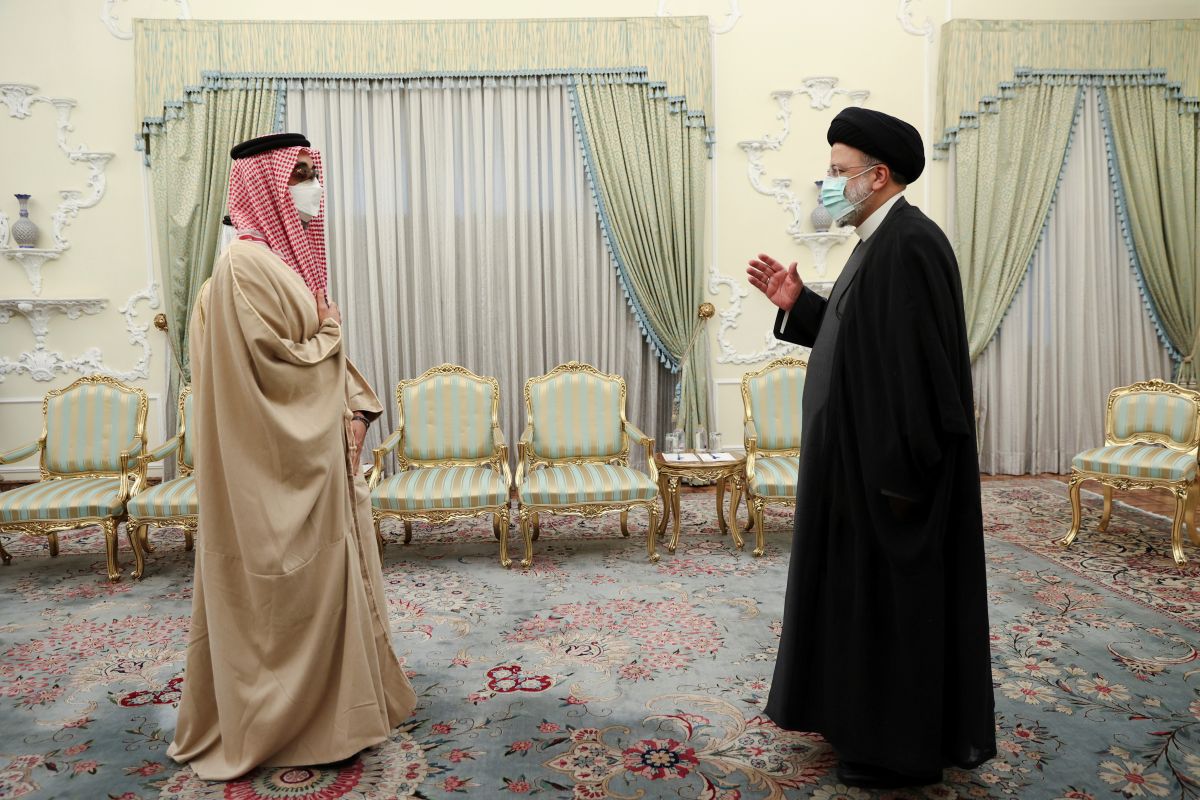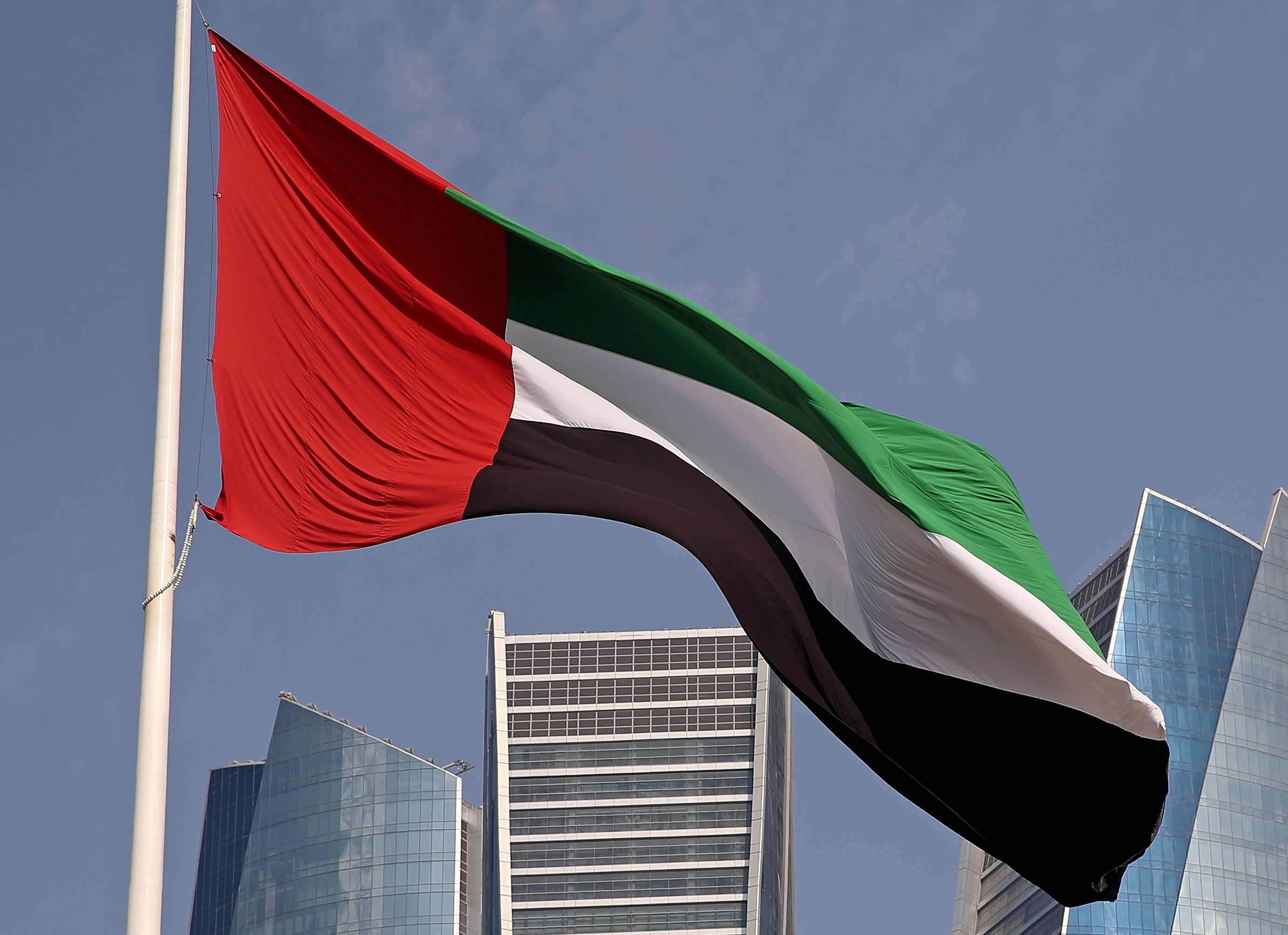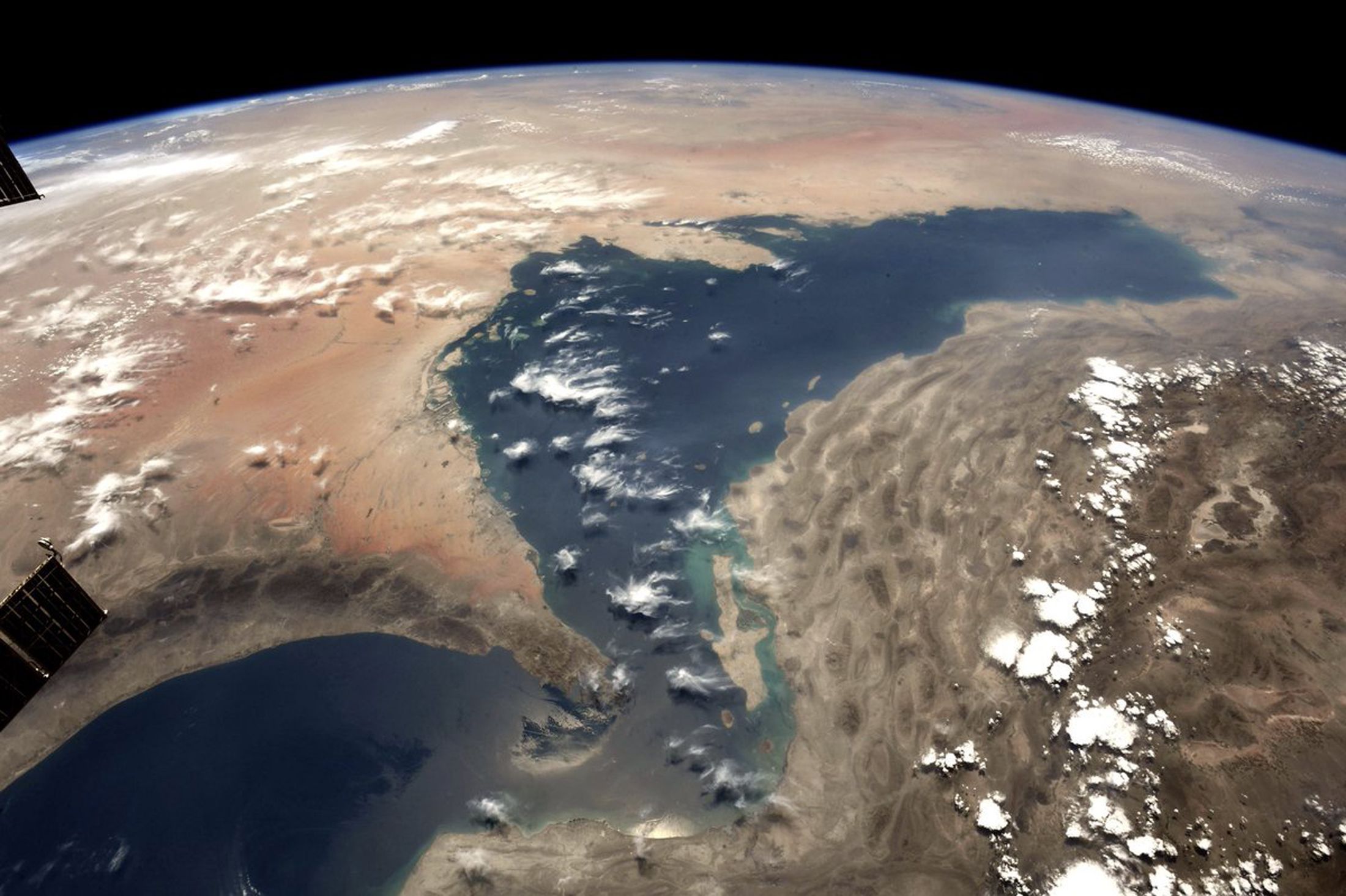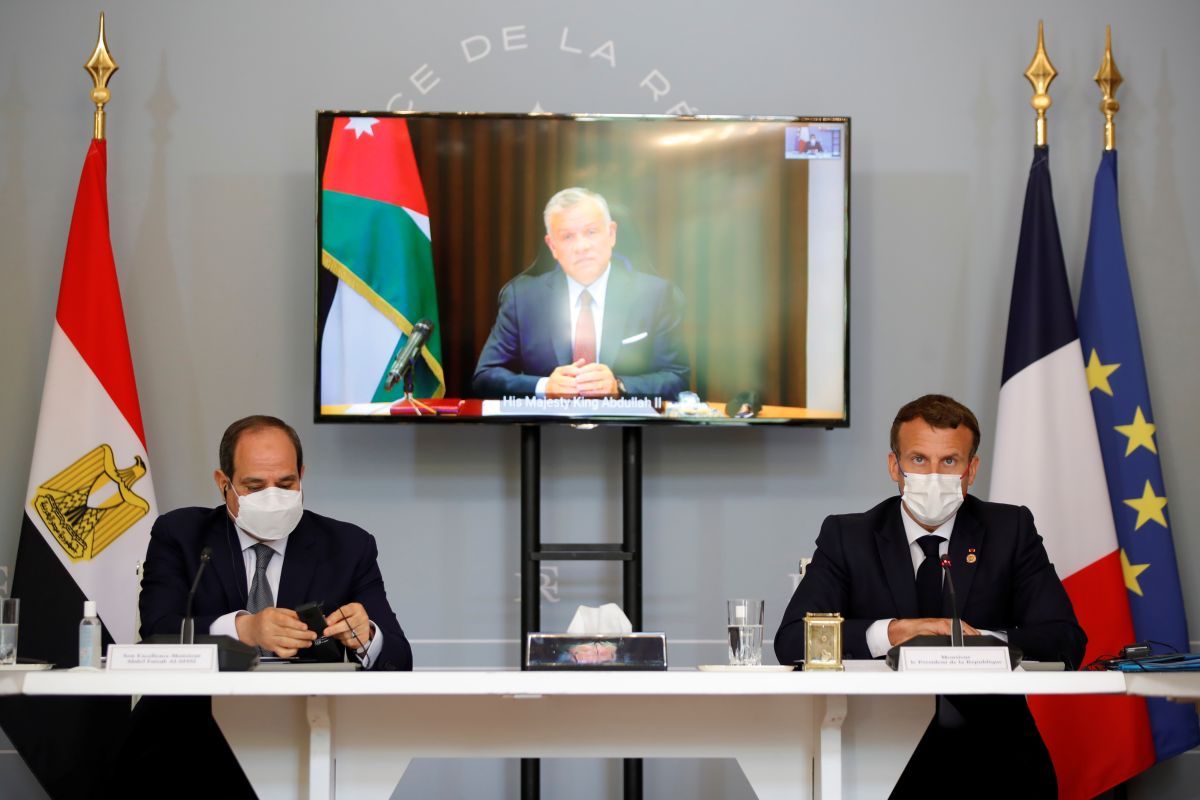Improving Arab Relations with Iran
During their September meeting with U.S. Secretary of State Antony Blinken, the foreign ministers of Gulf Cooperation Council (GCC) states expressed a preference for a return to the nuclear agreement (JCPOA) with Iran. This is an indication of a more conciliatory approach by Saudi Arabia and the United Arab Emirates (UAE) to Iran. This shift may positively affect the stability of the Middle East, but Arab autocrats will try to use the potential agreement to counter Western pressure for political reforms.
 Fot. Reuters/ WANA NEWS AGENCY/ FORUM
Fot. Reuters/ WANA NEWS AGENCY/ FORUM
Deescalating Tensions
The Arab states of the Persian Gulf began to seek to improve relations with Iran after the Trump administration failed to respond as expected to the attack of Iranian-backed militias on Saudi oil infrastructure in 2019. At that time, the leaders of Saudi Arabia and the UAE decided that the partnership with the U.S. was no longer a sufficient guarantee of their security. Consequently, these countries, and in particular the UAE, recognised that rapprochement with Iran would make it possible to influence its policy in the Middle East. A month after the attack, the UAE authorities signed a security coordination agreement with the Iranian border guard, and the Joint Emirati-Iranian Border Committee resumed cooperation after a six-year hiatus. Additionally, in October 2019, the UAE released $700 million in frozen Iranian funds. In December 2021, UAE National Defence Adviser Tahnoon bin Zayed al-Nahyan met with his Iranian counterpart, Ali Shamkhani, and Iranian President Ebrahim Raisi in Tehran. In turn, Ali Bagheri Kani, deputy foreign minister and Iran’s chief negotiator of the JCPOA, visited Dubai in November and met with UAE Secretary of State for International Affairs Caliph Shaheen al-Marar.
However, for a diplomatic breakthrough in the Middle East, the dialogue between Iran and Saudi Arabia must succeed. Relations between the two countries have been strained since the Islamic Revolution. Diplomatic relations were suspended in 2016 in connection to the execution of Nimr al-Nimr, a prominent Saudi Shiite cleric critical of the Saudi authorities. Iranians responded with protests, during which the Saudi embassy was set on fire. The first direct talks between representatives of the two countries since then took place in Baghdad last year on the initiative of the Prime Minister of Iraq Mustafa al-Kadhimi. Although four rounds of talks to normalise relations between Saudi Arabia and Iran have taken place since then, they have not brought results in the form of an agreement or promises to restore diplomatic relations. This is due to a disagreement over the sequencing of the process and the lack of progress in the JCPOA talks.
Motivations of the Arab States
The most important contentious issues between the Arab states and Iran remain valid. For Saudi Arabia and the UAE, the priority in the talks with Iran remains to limit its ballistic missile programme and its support for paramilitary organisations in Iraq, Yemen, Syria, and Lebanon. Saudi Arabia is also pushing for these issues to be included in the negotiations on the return to the nuclear agreement with Iran. At the same time, since Donald Trump’s defeat in the presidential election in 2020, international pressure on the Houthi militias in Yemen that are fought by an Arab coalition led by Saudi Arabia has decreased (e.g., the Biden administration has removed them from the list of terrorist organisations). The potential takeover of power in this country by the Iranian-backed Houthis poses a threat to the security of Saudi Arabia’s borders. Iran, however, insists that the restoration of diplomatic relations with Saudi Arabia should take place before its declarations to end support for the militias.
At the same time, the efforts to improve relations with Iran are related to concerns about the consequences of the gradual U.S. withdrawal from the Middle East and the aftermath of the negotiations on the JCPOA. The Arab Gulf states fear that a reduced U.S. role in the region and potential return to the nuclear deal will strengthen Iran’s position. A continuation of the confrontational approach could then further destabilise the region, which would be detrimental to the development and economic diversification strategies launched by the GCC states. One of the dominant elements of them is foreign investment and international cooperation in the field of innovation and technology, which would be significantly hindered by the escalation of competition with Iran.
Ending the dispute with Iran is also part of the UAE’s broader efforts to strengthen its control over sea trade routes in the Persian Gulf. As part of these efforts, the UAE held de-escalation talks with Iran in 2019 and participated in the European Surveillance Mission of the Strait of Hormuz (EMASOH) established in 2020. The UAE also underlined its commitment to protect maritime trade as a non-permanent member of the UN Security Council in 2022-23.
Threats
For both the UAE and Saudi Arabia, a significant motivation for dialogue with Iran is regional policy independence from the influence of Western countries. This stems from the less U.S. involvement in the region, which is seen as a decline in its credibility as a security partner. Additionally, the de-escalation of the dispute with Iran is part of wider efforts to strengthen the image of authoritarian Arab leaders as effective and competent regional leaders. This would allow them to avoid further outside pressure for democratisation and abiding by human rights in their countries while maintaining the benefits of partnership with the U.S. or the EU.
The intensification of talks with Iranian representatives also indicates the progressive independence of the UAE’s regional strategy from Saudi Arabia’s goals. Until recently, the Middle East policies of Saudi Arabia and the UAE had been consistent, but in recent years the Emirates’ authorities, apart from improving relations with Iran, withdrew their troops from Yemen and resisted pressure from Saudi Arabia to maintain oil production restrictions. This is because the UAE monarchs prioritise economic issues. In 2017, before the U.S. withdrew from the nuclear deal, the UAE was the second largest source of imports to Iran, with the value of trade between the countries reaching $13 billion. Two years later, trade fell to $3.5 billion due to the sanctions imposed on Iran. The Emirates’ authorities hope that the improvement of bilateral relations will allow a return to more favourable economic cooperation.
Conclusions and Perspectives
As relations between Saudi Arabia and the UAE with Iran continue to improve, the sources of hostility between them remain unchanged. The ineffectiveness of the talks between Iran and Saudi Arabia to date indicates that the Iranian authorities do not want to change their position on issues such as the conflict in Yemen or Iranian interference in the countries of the region, even with the possibility of normalising relations with Saudi Arabia. A breakthrough in the talks is therefore unlikely in the near future, because for Saudi Arabia, the potential for normalisation remains the main bargaining chip of pressure on Iran over Yemen and its support for paramilitary organisations.
At the same time, the gradual improvement in relations with Iran benefits the consolidation of authoritarian regimes in the region, especially in the UAE. Any success in the talks with Iran, especially if they prove to be permanent, strengthens the image of the current Arab leaders as stabilising factors in the region. This would persuade European governments and the Biden administration—both critical of the Gulf monarchies—of the benefits of working with them while discouraging attempts to isolate them over human rights violations or rapprochement with the Assad regime in Syria. The EU should consider the consequences of the Arab Gulf States’ agreement with Iran (as weakening democracy in the region) for the Union’s neighbourhood policy goals of greater transparency and civil liberties in the Middle East and North Africa. At the same time, attempts to influence Iran’s regional policy during talks with Saudi Arabia are beneficial from the perspective of the EU and Poland, as the return to the JCPOA would enable them to return to developing trade relations with Iran (in Poland, e.g., under the Go Iran programme).
For the UAE, rapprochement with Iran does not depend on the outcome of talks on the JCPOA. This means that, should the negotiations in Vienna fail, the improvement of Iran’s relations with the Emirates may allow the former to circumvent the sanctions more effectively, especially in light of the two countries’ close relations with China. At the same time, although the UAE is increasingly assertive towards Saudi Arabia, it remains the Emirates’ most important regional partner, which may limit the sustainability of the improvement in Emirati relations with Iran.




